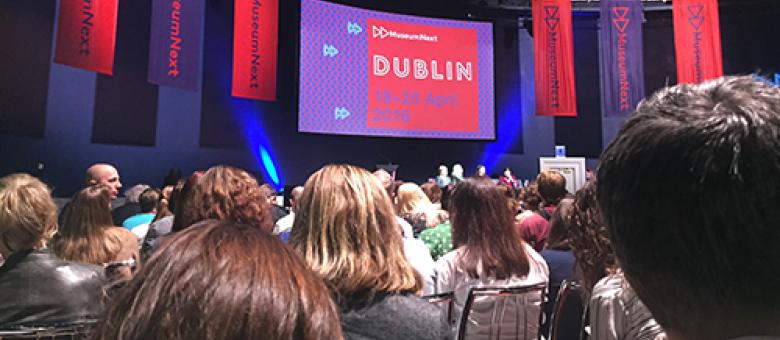
News

MuseumNext 2016: Dialoguing in Dublin
Access, inclusion, collaboration and empowerment were the themes that prevailed at this year’s MuseumNext conference, held in Dublin between 18 and 20 April. The event’s characteristic mix of interactive workshops, keynotes, conversations and panel discussions provided inspiration for museums juggling the challenges of attracting new visitors, involving communities, ensuring staff motivation, and staying afloat financially.
Day one kicked off with simultaneous tours, panels and workshops in various locations in Ireland’s capital. The historic centenary events in the city’s cultural institutions provided an inspirational backdrop for museums organising similar commemorative experiences in their own spaces. Lar Joye of the National Museum of Ireland and Louise Lowe from ANU Productions discussed their award-winning collaboration on “Pals: the Irish at Gallipoli”, as well as a new project, SUNDER, which propels audiences though the final hours of the 1916 Rising based on eyewitness accounts.
Day two’s Attracting All Ages panel looked at the myths behind three elusive visitor groups: older adults, children and millennials. Francesca Rosenberg, Director of Community, Access and School Programs at MOMA, discussed Prime Time – a programme designed to increase the attendance of older adults and cater to their increasingly diverse and learned profiles. Susan Evans McClure of the National Museum of American History dispelled the myths about how to reach millennials, who actually value real experiences and authenticity as much as their older counterparts, she says. Meanwhile, former journalist Dea Birkett spoke of how she transformed her own experience of being expelled from a museum with her “boisterous” children into a new initiative – Takeover Day – which gives children a structured role in the museum, ultimately changing their perception of cultural institutions.
Keynotes were given by Marian Goodell, CEO of the Burning Man Organization, a global movement to inspire culture around the world and a model of public and community engagement, and Michael Gorman, on his last day as CEO of Science Gallery International. Gorman shared his experience of building a global network of science galleries in Dublin, London, Bengaluru, Melbourne and beyond, through collaboration with local universities and companies. In conversation with Jasper Visser, David Fleming spoke of National Museums Liverpool’s mission, “To be the world’s leading example of an inclusive museum service”, and cited the Museum for International Democracy in Argentina as an innovative model of inclusion.
So, can museums change lives, and if so, how? “Museums need to build a rapport with their audience,” says Fleming. “They should be there for people who have been short changed by the education system, and expose them to new ways of thinking. That’s how museums can have an impact on people.”
(Report ICOM International)
The future of museums: ‘soft power’ and the hard sell
http://www.museumnext.com/conference/





